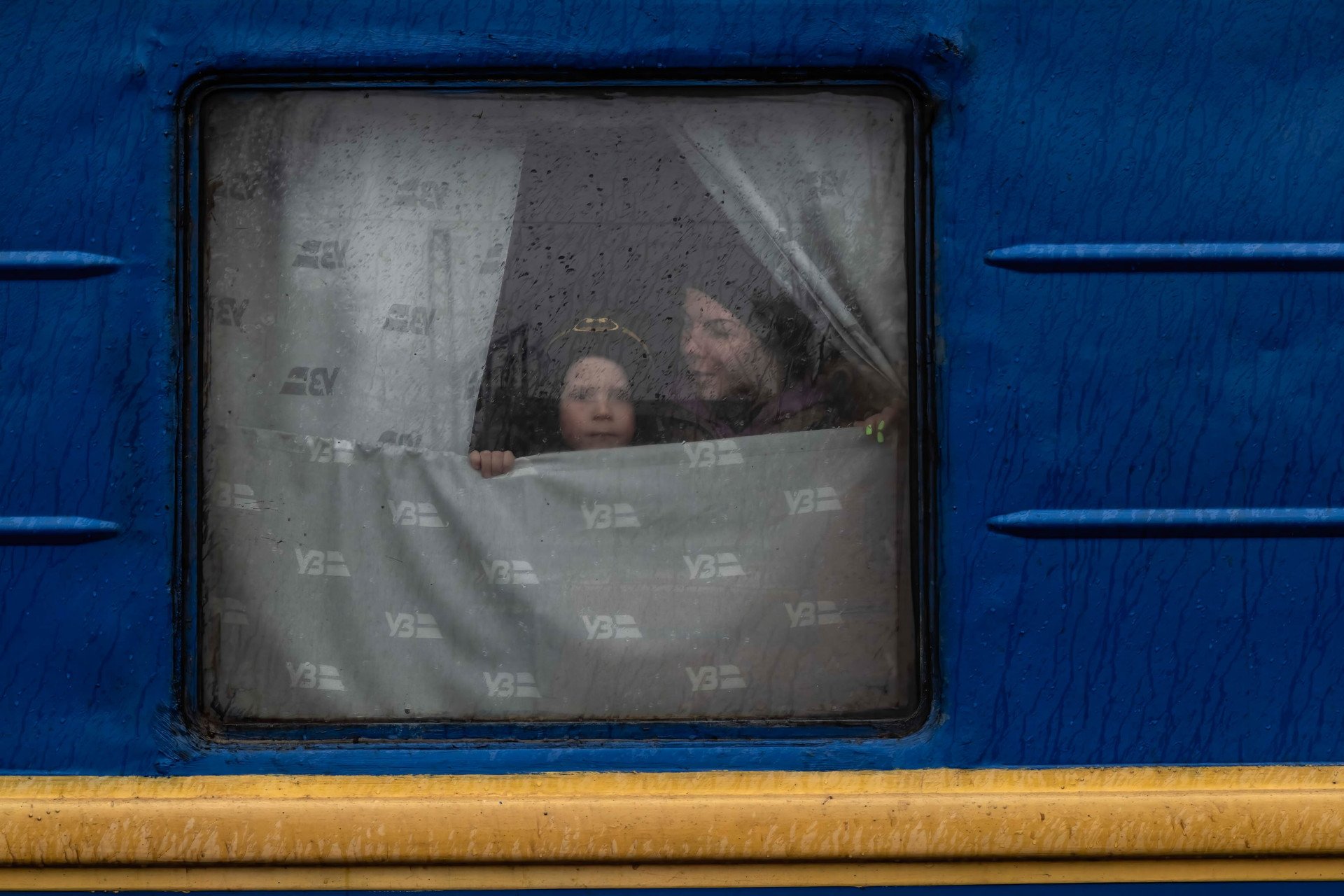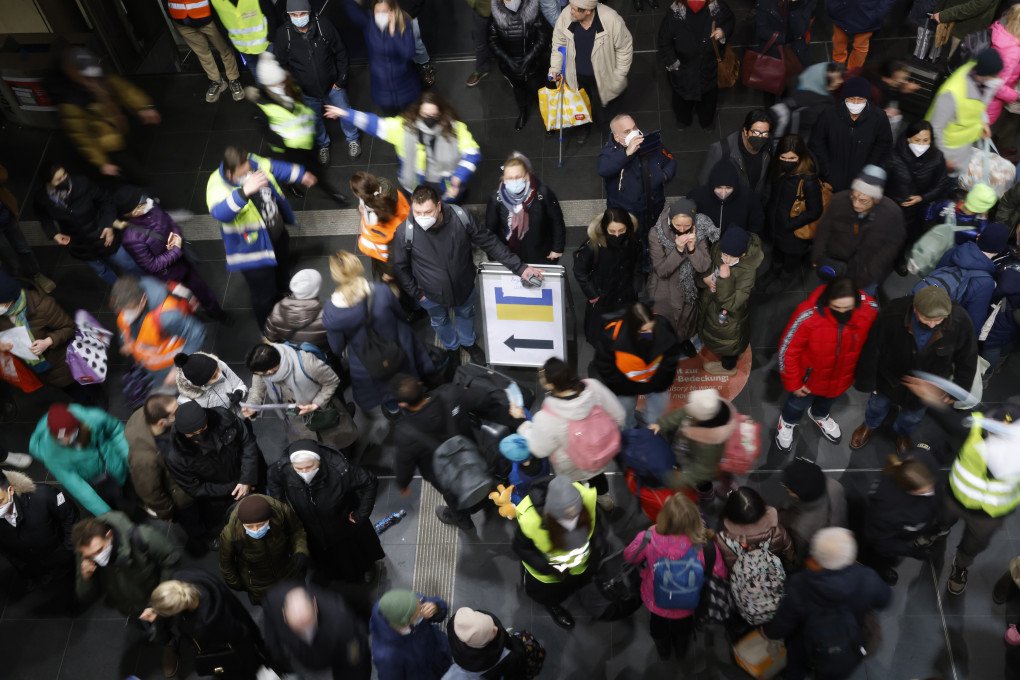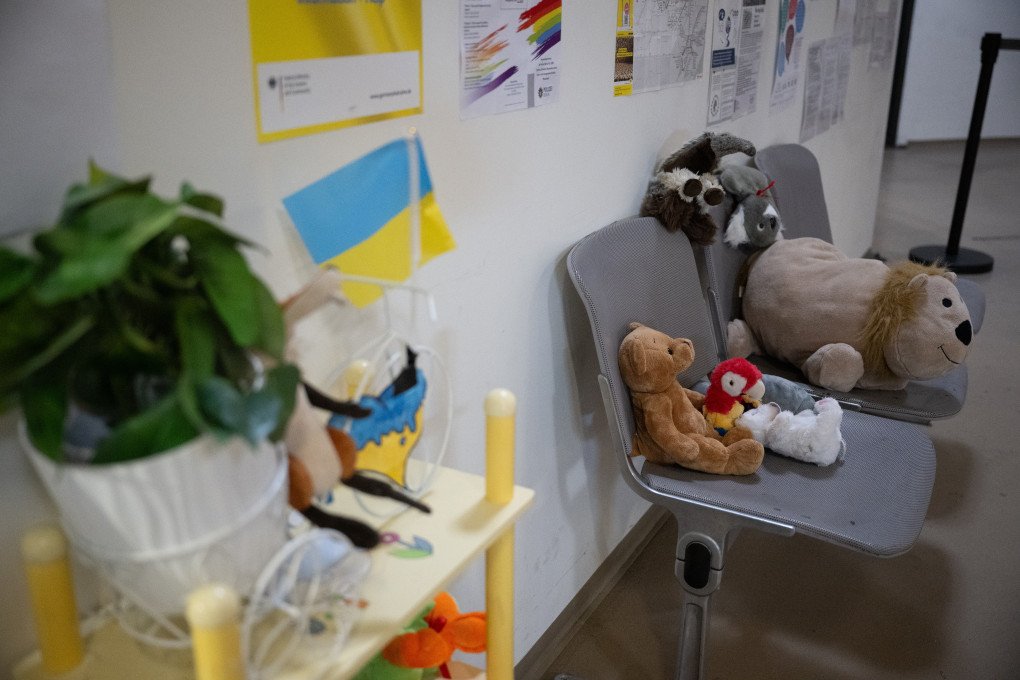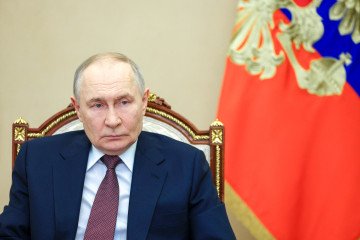- Category
- Anti-Fake
Unveiling Russia's Disinformation War on Ukrainian Refugees, A Battle of Narratives

The struggles of Ukrainian refugees extend beyond physical displacement; they are also the targets of an intense information war.
Since Russia's full-scale invasion of Ukraine in February 2022, millions of Ukrainians have been uprooted from their homes. The United Nations reports that around 6 million Ukrainians have sought refuge across Europe, while an additional 5 million remain internally displaced. This mass exodus has spawned an unprecedented refugee crisis.

The Russian state has engaged in widespread disinformation campaigns aimed at discrediting the image of Ukrainian refugees and undermining the support they receive from the international community. These campaigns seek to sow discord and generate mistrust, complicating the already difficult circumstances refugees face. The National Security and Defense Council of Ukraine’s Center for Countering Disinformation (CCD) has completed a comprehensive project to analyze the extent and impact of these hostile information campaigns. The CCD’s report sheds light on three core themes of Russian propaganda, which is crafted and disseminated to influence perceptions and attitudes toward Ukrainian refugees across Europe.
Discreditation of a Crisis
Area 1: Demonization of Ukrainian Refugees
A few months after the onset of Russia's full-scale invasion and the subsequent resettlement of many Ukrainian citizens in Europe, the Russian state initiated a focused information campaign to discredit these refugees. The primary objective was to warp European perceptions of Ukrainians, painting them as "ungrateful vandals and criminals."
One of the main actors in this campaign was Nikolai Patrushev, the former Secretary of the Russian Security Council. On April 26, 2022, in an interview with the newspaper Rossiyskaya Gazeta, Patrushev made several inflammatory statements aimed at Ukrainian refugees. He claimed that "most Ukrainians who came to the West believe that Europeans should support and provide for them, and when they are forced to work, they start to rebel." Patrushev escalated his rhetoric by insinuating that Ukrainian refugees posed a criminal threat to Europe. He stated that "representatives of the criminal community who fled Ukraine will try to occupy niches that are favorable to them, to take control of local criminal groups, which will undoubtedly be accompanied by a complication of the crime situation in Europe." This narrative aimed to instill fear and suspicion among European citizens, painting Ukrainian refugees as a source of increasing criminal activity, entitled and unwilling to integrate into their host societies.
The Russian disinformation machine produced numerous fake news stories to support these narratives. For instance, a fictitious post alleged that Ukrainian refugees caused large-scale forest fires in Spain by attempting to burn a Russian flag. This story spread in the Spanish-language information space but was later debunked by the StopFake fact-checking project, which clarified that the video in question was edited to include false claims.
Despite initial failures to gain significant traction, these disinformation campaigns persisted, with the Russian state continually producing and disseminating new content aimed at vilifying Ukrainian refugees. For instance, claims of Ukrainian refugees causing a bedbug infestation in Paris emerged in October 2023, supposedly published by a French news outlet Libération. This story was also debunked, with Libération confirming that no such article linking Ukrainian refugees to bedbugs had ever been published.
The Russian state has invested considerable effort into "demonizing" Ukrainian refugees for the European audience. Through a mix of official statements, fake news, and manipulated narratives, Russia aims to undermine the support and sympathy that Ukrainian refugees receive. These disinformation tactics are part of a broader strategy to destabilize European unity and weaken international support for Ukraine.
Area 2: Demonization of the EU сountries supporting Ukrainian refugees
In tandem with its efforts to demonize Ukrainian refugees, the Russian state has also targeted the European Union, aiming to discredit its member states and citizens. This aspect of the disinformation campaign seeks to portray European nations as unreliable and self-serving, undermining their policies of humanitarian aid and social security for Ukrainian refugees.

Russian Foreign Minister Sergei Lavrov has been a prominent figure in this disinformation effort. On June 30, 2023, Lavrov claimed that numerous Ukrainian refugees had appealed to Russian authorities, alleging that European guardianship agencies were forcibly taking their children away. Lavrov's statement, aimed at sowing distrust among Ukrainian refugees towards their host countries, suggested that "it would be nice for the Europeans, since they are dealing with children who are allegedly forcibly detained in Russia, to see what happens to children in Europe." Maria Zakharova, the spokesperson for the Russian Ministry of Foreign Affairs, also contributed to this narrative. On December 3, 2022, Zakharova claimed on her Telegram channel that “Ukrainian refugee women were increasingly becoming victims of sexual slavery and exploitation in Europe”. She further alleged that these issues were being ignored by both Kyiv and the international community, aiming to paint Europe as a dangerous and hypocritical place for Ukrainian refugees.
Russian media and Telegram channels have been prolific in spreading disinformation and manipulative messages to discredit European support for Ukrainian refugees. On December 27, 2023, the Sheikh Tamir Telegram channel published a misleading post claiming that “Eurostat had released statistics showing that a majority of Germans supported the forced extradition of Ukrainian refugees”. This was another attempt to create the illusion of growing hostility towards Ukrainian refugees in Europe. However, this claim can't be substantiated, since no such statistic existed on the Eurostat website.
The Russian disinformation campaign against the EU's support for Ukrainian refugees is a calculated effort to undermine European solidarity and weaken international support for Ukraine. By spreading false narratives and manipulated stories, Russia aims to depict European countries as unsafe and unreliable, fostering fear and mistrust among Ukrainian refugees.
Area 3: Positioning Russia as the best safe haven for Ukrainian refugees
Beyond discrediting Ukrainian refugees and their European supporters, Russia has actively promoted itself as a preferable and secure haven for these displaced individuals. This narrative is designed to justify the so-called "special military operation" and to undermine the credibility of the Ukrainian government, presenting Russia as a benevolent and welcoming nation.
High-ranking officials have been instrumental in advancing this narrative. For instance, on November 4, 2022, during a conversation with volunteers, Russian dictator Vladimir Putin contrasted the behavior of Ukrainian refugees in Europe with those in Russia. He claimed that “while Ukrainian refugees in Europe were demanding discounts and services, those in Russia were asking for jobs, implying a greater level of integration and contribution to Russian society”.
Similarly, Maria Zakharova, the spokesperson for the Russian Ministry of Foreign Affairs, asserted in an interview on September 9, 2022, that “a long queue of people was forming at a checkpoint in Zaporizhzhia, with up to 700 individuals returning home each day after learning about the peaceful life in Russian-occupied territories”. She suggested that “many Ukrainians preferred living under Russian control, painting a picture of Russia as a desirable destination compared to the "corrupt and criminal Kyiv regime." Russian media have been prolific in spreading this narrative, emphasizing the supposed benefits and stability that Ukrainian refugees find in Russia. State-controlled outlets have highlighted stories of Ukrainian refugees receiving better treatment and opportunities in Russia compared to Europe. The Russian state has been actively positioning itself as the best refuge for Ukrainians fleeing the war, employing a mix of official statements, media narratives, and coordinated inauthentic behavior to propagate this image. By contrasting its purportedly friendly attitude towards refugees with the challenges faced by Ukrainian refugees in Europe, Russia aims to justify its actions and undermine the credibility of the Ukrainian government.
The disinformation war waged by Russia against Ukrainian refugees is a multifaceted strategy aimed at destabilizing European unity, undermining support for Ukraine, and promoting Russia as a benevolent refuge. By deploying narratives that demonize Ukrainian refugees, discredit EU countries, and elevate Russia as a preferable haven, the Kremlin seeks to manipulate public perception and policy. Understanding and countering these disinformation tactics is crucial in supporting the resilience and dignity of Ukrainian refugees, maintaining international solidarity, and upholding the integrity of humanitarian efforts.
Banner image: Refugees on a train for Poland at Lviv train station. (Source: Getty)

-3db1bc74567c5c9e68bb9e41adba3ca6.png)




-f88628fa403b11af0b72ec7b062ce954.jpeg)